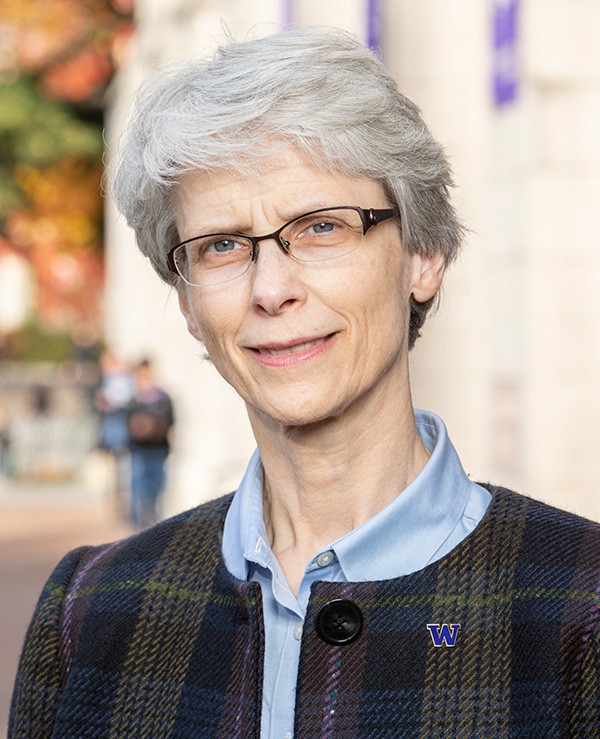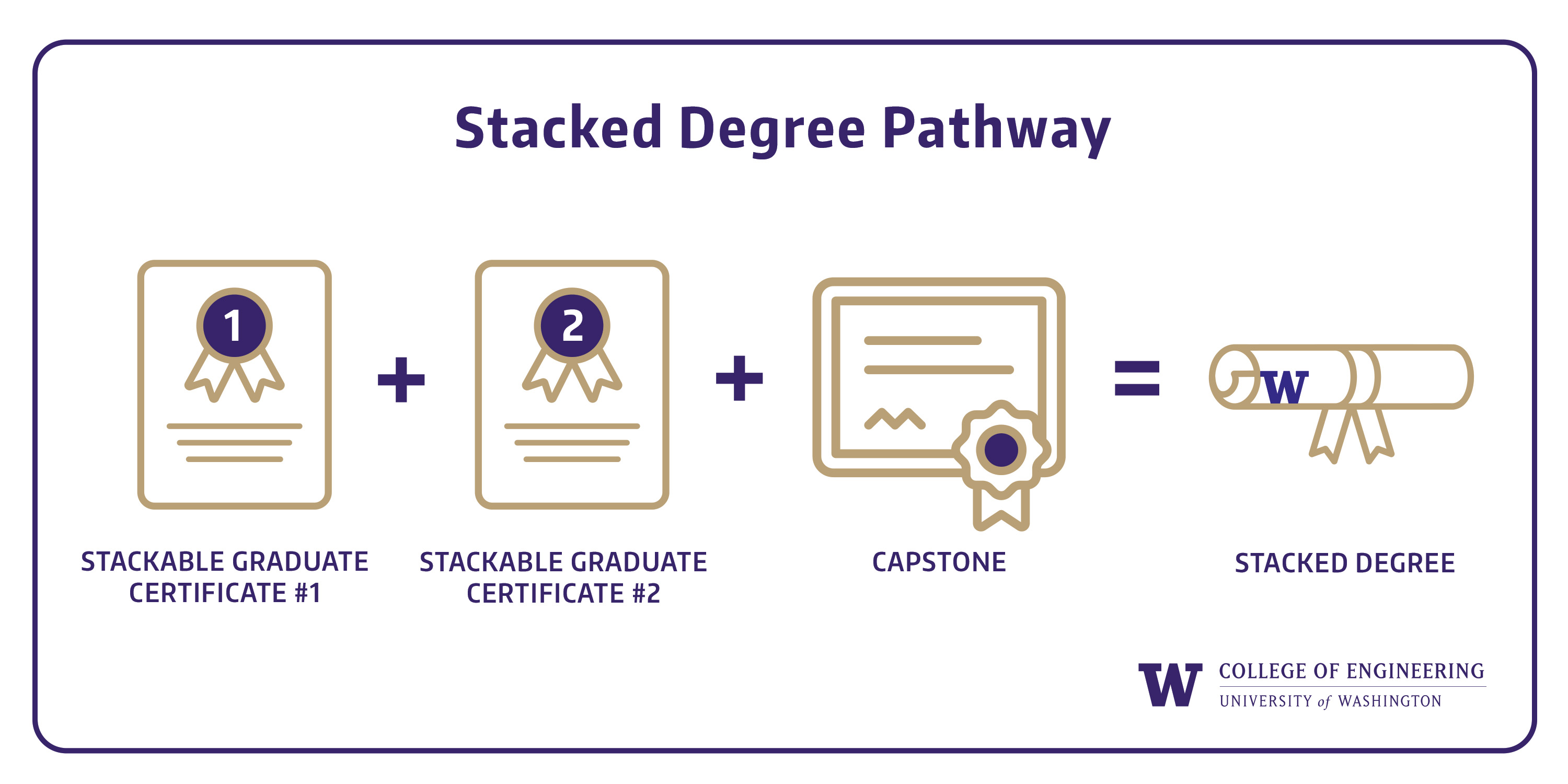
A master’s degree tailored to your professional needs
Experienced engineers can build their degree from more than 15 certificates in specialized topics
See program highlightsYour specialized degree on your schedule
An innovative master’s degree with the flexibility to meet tomorrow’s challenges. The Master’s of Engineering in Multidisciplinary Engineering allows you to build your degree from more than 15 certificates in specialized topics.
Specialized topics
- AI and machine learning
- Aerospace and aeronautics
- Materials and composites
- Controls and dynamic systems
- Human-centered design
- Systems engineering leadership
Who is this program for?
This program is designed for working professionals and aspiring engineers who want to advance their career by increasing their expertise in multiple engineering disciplines and apply their knowledge to practical problems in the workplace.
Eligibility requirements
Because the program is designed for students to demonstrate their multidisciplinary competence through an industry-engaged project, students must have at least two years of full-time post-undergraduate work experience in engineering when they apply for the degree. However, students can start their certificates before applying. See the admissions section for more information.
The multidisciplinary degree is not eligible to provide sponsorship for an F1/J1 visa. Students living outside the U.S. should contact an adviser in their certificate of interest to explore completing the program from abroad.

The most exciting and pressing challenges in engineering today demand multidisciplinary solutions. By integrating expertise across disciplines, we are setting the trend for the future of engineering education and preparing graduates to lead innovation in an ever-evolving world.
How it works
Stackable graduate certificates are the foundation of the multidisciplinary engineering master’s degree.
You build your degree by completing two certificates that are relevant to your career goals, then demonstrate your expertise in these areas by completing an applied capstone project.

Completion time
Students can complete the Master’s of Engineering in Multidisciplinary Engineering in as few as two years, or up to six years from the start of the first certificate.
All stackable certificates are offered part-time, most have online and hybrid options.
Each certificate takes nine months to one year to complete. After completing the second certificate, students demonstrate their knowledge through a capstone project that they identify and propose.
Capstone
The applied capstone project bridges what students learned in the two certificates to solve an engineering challenge in the workplace.
This customized approach allows students to accelerate their knowledge and develop skills on the cutting edge of their field.
A capstone is the culmination of a master’s degree. In this program, your capstone consists of a six-credit project where you identify a current challenge within an engineering organization and propose a multidisciplinary solution. The proposed solution should reflect engineering practices from your two chosen certificates.
Your capstone is an opportunity to demonstrate the knowledge and skills you have gained to current and future employers, professors, peers and the College of Engineering community.
The capstone experience is supported by expert faculty and an industry sponsor that you identify. Industry sponsors will likely be from your place of employment, but you can also seek industry support from another organization.
For more information on the Multidisciplinary Engineering capstone, contact engr-professional@uw.edu.
Degree components
To complete the master’s degree, students must choose one of the following certificate disciplinary combinations:
Two different disciplines
Two multidisciplinary certificates
One disciplinary &
one multidisciplinary
-
William E. Boeing Department of Aeronautics & Astronautics (A&A)
- Aerospace Composite Structures
- Modern Aerospace Structures
- Aerospace Control Systems
-
Chemical Engineering (ChemE)
- AI/ML - Driven Molecular & Process Engineering (enrolling 2026)
-
Paul G. Allen School of Computer Science and Engineering (CSE)
- Modern AI Methods
-
Human Centered Design & Engineering (HCDE)
- User Centered Design
- Human Centered AI (pending approval)
-
Industrial & Systems Engineering (ISE)
- Engineering Systems Leadership
- Data Analytics for Systems Operations
- Systems Engineering Design and Analysis
-
Mechanical Engineering (ME)
- Data-Driven Methods for Controls and Dynamic Systems for Engineering
-
Material Science & Engineering (MSE)
- Data Science for Materials
-
Multidisciplinary Certificates
- Artificial Intelligence and Machine Learning for Engineering (all departments)
- Battery Engineering, Materials, and Manufacturing (ChemE/MSE/ME)
- Composite Structures: Materials and Manufacturing (MSE/ME)
Note: Students may not choose two certificates from the same discipline.
Sample pathways
Below are examples of stackable certificate combinations, which lead to a master's degree (after applied capstone project completion). Refer to the degree components above to explore all possible certificate combinations.
AI for Aerospace Engineering
Artificial Intelligence and Machine Learning for Engineering
Aerospace Control Systems (A&A)
Human-Centered Applications of AI
Modern AI Methods (CSE)
User Centered Design (HCDE)
Modern Materials and Structures
Composite Structures: Materials and Manufacturing (MSE/ME)
Modern Aerospace Structures (A&A)
Engineering Leadership in New Energy Technologies
Battery Engineering, Materials and Manufacturing (ChemE/MSE/ME)
Engineering Systems Leadership (ISE)
Application and admissions requirements
Applying for a stacked master’s degree is distinct from applying for a traditional master’s program. First, students begin working through the two program certificates, then apply for the degree.
Certificate application requirements
Applicants must have a baccalaureate STEM degree from a nationally recognized postsecondary institution with institutional accreditation or equivalent from an international institution, and a 3.0 GPA for those credits.
Complete coursework first, apply later
Before applying for the master’s degree, students must:
- Complete at least one certificate and enroll in a second.
- Complete at least two years full-time work experience. This can be done simultaneously with certificate programs.
- Propose and get approved for an applied capstone project based on an industry relevant challenge. The capstone project should demonstrate multidisciplinary skills from the two completed certificates.
Degree graduation requirements
Obtaining the Master’s of Engineering in Multidisciplinary Engineering requires successful completion of:
- A minimum of two qualifying graduate certificates;
- A minimum of 36 credits with a minimum cumulative 3.0 GPA;
- A qualifying capstone project and presentation.
Program cost
The degree program is comprised of two stackable certificates and a capstone project.
Each certificate is priced individually. Cost estimates are available on the program page for each certificate, which can be found using the graduate degree and certificate search.
Additionally, students will need to enroll in a six credit capstone course. For reference, for the 2024-2025 academic year, the cost-per-credit was $1,000.
For more information
Please contact us at engr-professional@uw.edu if you have additional questions.